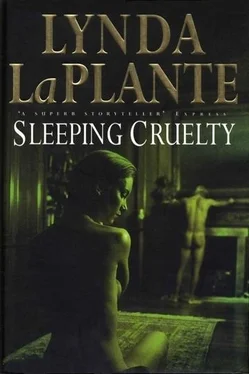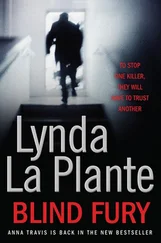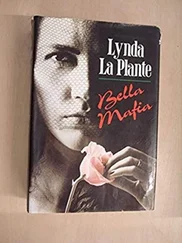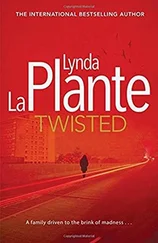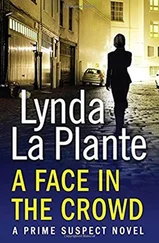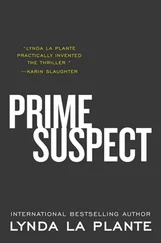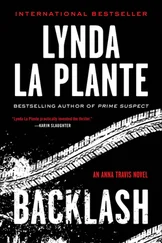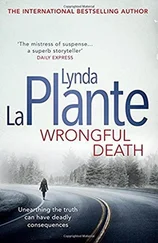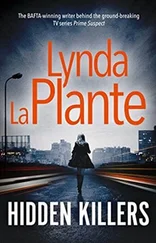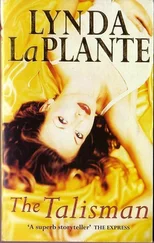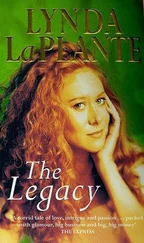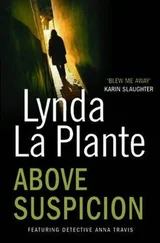‘But — but I...’
She lay back on her pillows. ‘Our Father who art in Heaven... If he had stayed, Justin would have had to kill you, Willy, because a father figure represented evil to him. A father would control him, punish him, as our father did. You see, whenever we needed the strength to...’ she couldn’t bring herself to say ‘murder’ ‘...we would just remember our father and what he did to us. Then we could do whatever we wanted. It made it all right.’
William bowed his head. His eyes brimmed with tears.
‘But he would never have wanted to hurt you, Willy, not you. He knew you would take care of me so it meant he was free. I have been a burden to him, I know that.’
William could say nothing.
‘He didn’t hurt Max, though, did he?’ She smiled.
‘No. Max is back in London now.’
Her face twisted and then she unfurled her fingers. ‘Good. No harm done. And with no one finding Justin, he can’t be buried, can he?’ she asked, puzzled.
‘I can arrange a memorial service.’ William gulped.
‘No, this island is memory enough. And he’s here, William, he won’t ever leave. I don’t want any service, he only loved me, you and this island.’
Laura drew him into her arms as if he was a child.
‘Marta will be here today,’ he said.
‘Marta will like it here. She will take good care of us.’
William’s heart leaped as she said ‘us’. ‘Will you stay on?’
‘I would like to stay here always,’ she said, without any hesitation.
‘I will never let you down, Laura. Please believe that, without him, you are now the most important person in my life.’
‘Thank you,’ she said.
Marta arrived late in the afternoon. William was waiting for her and held her tightly as she cried. He gestured for the boys to carry her luggage to the waiting golf cart, and hooked his arm through hers. Later she sat with William on the veranda, sipping a glass of chilled champagne. ‘You can feel him here,’ she said, ‘in the plants, on the breeze.’
William nodded: he believed it. In some ways it had eased his grief. Marta’s eyes filled with tears, and when she patted her pocket for a handkerchief, William handed her his.
‘Thank you,’ she said, and dabbed her eyes. She asked if he had noticed how often Laura said that phrase.
‘I have. It’s very endearing.’
Marta folded and refolded the handkerchief on her lap. ‘It isn’t. It’s heartbreaking. If you were to rape her or to brand her with a red-hot iron, she would thank you.’ Marta sighed. ‘They were both forced to say it after whatever they had been subjected to. Justin used to say it as much as Laura. Once he stole some money from my purse, just some loose change, but I was angry. I smacked his hand and he looked at me and said, “Thank you.” When he brought Laura home from the asylum, I used to watch him looking at her as she repeated over and over: “Thank you, thank you for the pain.”’
‘I am in such pain now, Marta,’ he said bleakly.
‘You are not to blame,’ she said kindly.
‘I am, Marta. I said I wanted to be a father to him. I know now it was the worst thing I could have said to him and, anyway, it was a lie. I was incapable of admitting to him, and to myself, that I wanted him to be...’ he swallowed, unable to admit even now that he had wanted Justin in every way a man can love another man. He was still ashamed to acknowledge his feelings.
‘You don’t need to say any more, I understand. Remember I used to see you together, see the way he looked at you, and you at him?’
He leaned over and kissed her cheek. ‘Marta, I will protect Laura with my life. No one is ever going to hurt her again.’
Marta was frightened: he had to have an ulterior motive. William saw her anxiety and understood.
‘I want only to care for her,’ said William. ‘Justin changed my life. I intend to come back here to live, because he is here. Here I’ll be close to him.’
William’s life took on a different perspective in the period after Justin’s death. The coverage of Matlock’s funeral was on the front page of every newspaper, and in all the television news broadcasts. Angela gave the performance of her life as the grieving widow, dressed by Valentino. At long last she was the focus of everyone’s attention. James remained in a child-like state, dependent upon his mother, most of the time unaware of where he was, or that his father was dead. Max returned to the dominant arms of his mother as she searched for a suitable, rich wife for him. They rarely, if ever, saw the Baron whose downfall had been written up in the press world-wide. They now lived totally separate lives.
The Hangerfords divorced and Daphne was obliged to live in more meagre circumstances. The lack of money, however, meant that she lost more weight than she had ever done before and she felt considerably happier with herself. Clarissa discovered that her father had also plundered her trust fund and she conceded to finding work as a nanny.
William returned to London when Sabrina went into labour, producing robust twin grandsons. Considering her new ‘free’ lifestyle, she was appallingly conventional: she had a Harley Street consultant and a private room at the Portland Clinic. Jacob remained steadfastly at her side, only rushing in and out to tell the pacing William that everything was going to be fine. When William held the babies he felt a tremendous rush of emotion. ‘They’ll love to play on my island,’ he said to Jacob.
Charlie seemed to have got his life on some kind of path. He had formed a ‘steady attachment’ to a wisp of a girl, who made wheat-free pies and bread, and wanted to open a ‘health-food café’. William discussed with him where it might lead, but could feel no deep, emotional bond with his son. He knew he should be ashamed of this, but his children had been brought up by Katherine and he had spent so little time with them. He set aside large trust funds for Sabrina, Charlie and his grandchildren, even though he initially balked at the idea of making their future lives financially secure. Although William now accepted he would never be close to either his son or his daughter, he cared for them deeply. They were getting on with their lives, and he felt no guilt at cutting loose from them. He would always be there for Charlie and Sabrina, if they needed him, but he doubted it would be for more than money. He also drew up a new will, leaving vast sums to charitable foundations, particularly organizations against child abuse.
To his employees he became a calmer figure. One by one his companies were restructured to enable him to have as little to do with them as possible. Rumours spread that he had some incurable illness, and was preparing for death. Nothing could have been further from the truth, of course: he was preparing to live his life and to enjoy it to the utmost. But William had ceased to worry about what other people said. He knew that what you feel inside is more important than anything anyone else thinks.
While in England, William put in order his financial affairs, to leave him free to relocate to the island. He wrote to Laura every week without fail, and telephoned every two or three days. He hired an art teacher for her as she had begun painting, and he was delighted when she said she had been learning to sail. He became paternal, even over-protective, towards her, warning her not to go too far out when she swam, to use sun cream and always to wear a lifejacket. He loved to hear her giggle and call him an old fusspot. Laura became the child he had never been allowed to enjoy.
Marta gave him bulletins on Laura’s progress, and she, too, sounded pleased to hear from him, saying how much they missed him. She listed the new plants she had put into the flower-beds and worried about overspending: she was now keeping the household accounts. William enjoyed these lengthy discussions with Marta, who always asked his advice, even on the smallest matter. He liked her consideration, but above all he loved her honesty. Only half the staff had been retained on the island, and Dahlia had brought her son over to live with her. She and Marta had become friends and ran William’s island home with an attention to detail that ensured it was always immaculate and ready for his arrival.
Читать дальше
